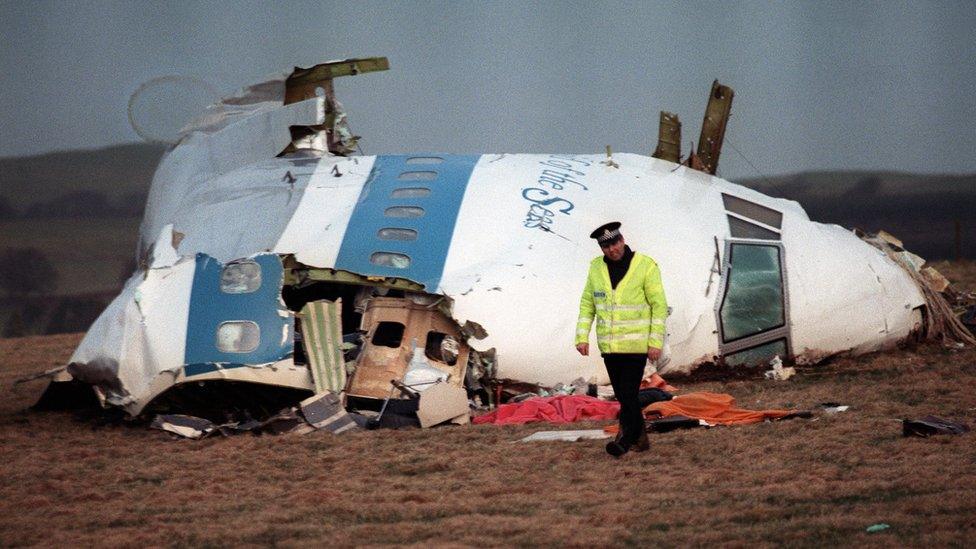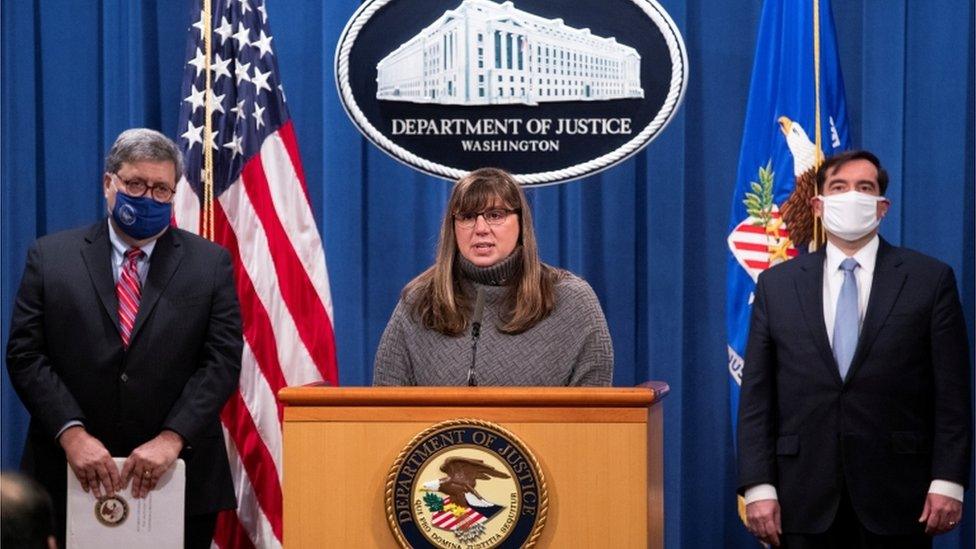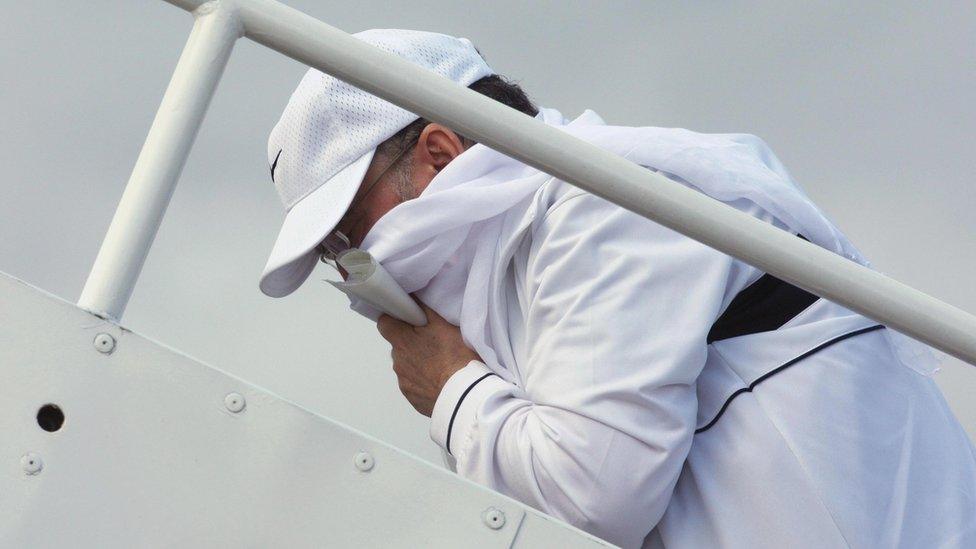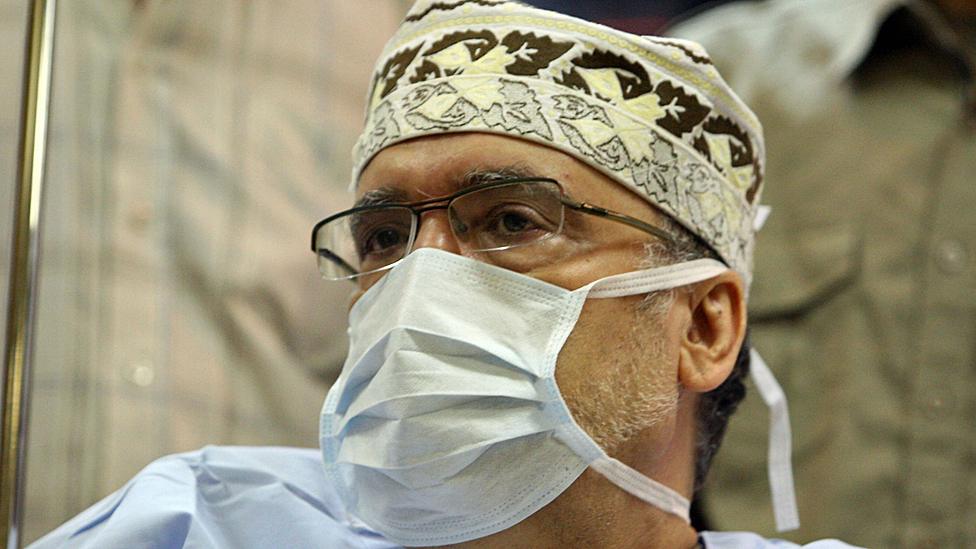Lockerbie: Two routes to justice, no end in sight
- Published

A total of 270 people died in the Lockerbie bombing on 21 December 1988
More than 32 years after the Lockerbie bombing horrified the world, the opposing sides in the legal battle over the case are travelling in two very different directions.
Prosecutors in the US Justice Department have announced criminal charges against a new Libyan suspect. Their counterparts at the Crown Office in Scotland, long-standing partners in the Lockerbie inquiry, might follow suit.
Having just lost a third and posthumous appeal for the only man convicted of the bombing, lawyers representing Abdulbasset Al Megrahi's family are hoping to raise another appeal with the UK Supreme Court in London.
All 259 passengers and crew on board Pan Am 103 were killed when a bomb exploded in its hold as it flew from Heathrow to New York, on December 21, 1988. The wreckage fell on Lockerbie and killed another 11 people in their homes.
Megrahi was convicted in 2001 after a UN-brokered trial held at a Scottish court sitting at Camp Zeist in the neutral Netherlands. The prosecution case was that the bombing had been an act of state sponsored terrorism by Libya, and that as a member of that country's intelligence service, Megrahi played a central role. He protested his innocence to his dying day.
A first appeal was rejected by five Scottish judges in 2002 and Megrahi was flown to Scotland to start serving a life sentence.

Kara Weipz (centre), representative on behalf of the Pan Am 103 families, delivers remarks beside US Attorney General William Barr (left)
Five years later, the Scottish Criminal Cases Review Commission sent the case back for a second appeal, after deciding that Megrahi might have been the victim of a miscarriage of justice.
Then fate intervened. Megrahi fell ill with cancer and abandoned that second appeal in 2009, days before he was released on compassionate grounds by the Scottish Government. He returned to Libya and died in 2012.
At the request of his family, the Scottish Criminal Cases Review Commission examined the conviction again, came to the same conclusion and sent it back for a third appeal. Another five highly experienced Scottish judges considered the case and decided the conviction should stand.

Megrahi was released from prison in 2009 on compassionate grounds
Had they decided otherwise, it could have dealt a major blow to the prospects of a second Lockerbie trial.
Four years ago the then head of Scotland's prosecution service said such an event was "a realistic possibility." After the judgement on the third appeal, Alison Di Rollo QC, the current solicitor general at the Crown Office, would only describe a second trial as a "possibility," a difference which may or may not be significant.
'Heartbroken at decision'
Undoubtedly there are many hurdles in the way of a second trial, not least the fact that the new Libyan suspect Abu Agila Masud is currently languishing in a Libyan prison. The United States and Libya don't have an extradition treaty, unlike Libya and the UK.
But sources close to the case say it could happen. A way could be found to get Masud into an American court.
Megrahi's family meanwhile are said to be "heartbroken" by the latest decision of the appeal court and through their solicitor in Scotland, have vowed to fight on.
Two directions of travel. Two very different destinations. No end in sight. As always with this case, it would be unwise to predict what will happen next.
Related topics
- Published15 January 2021

- Published22 December 2020
